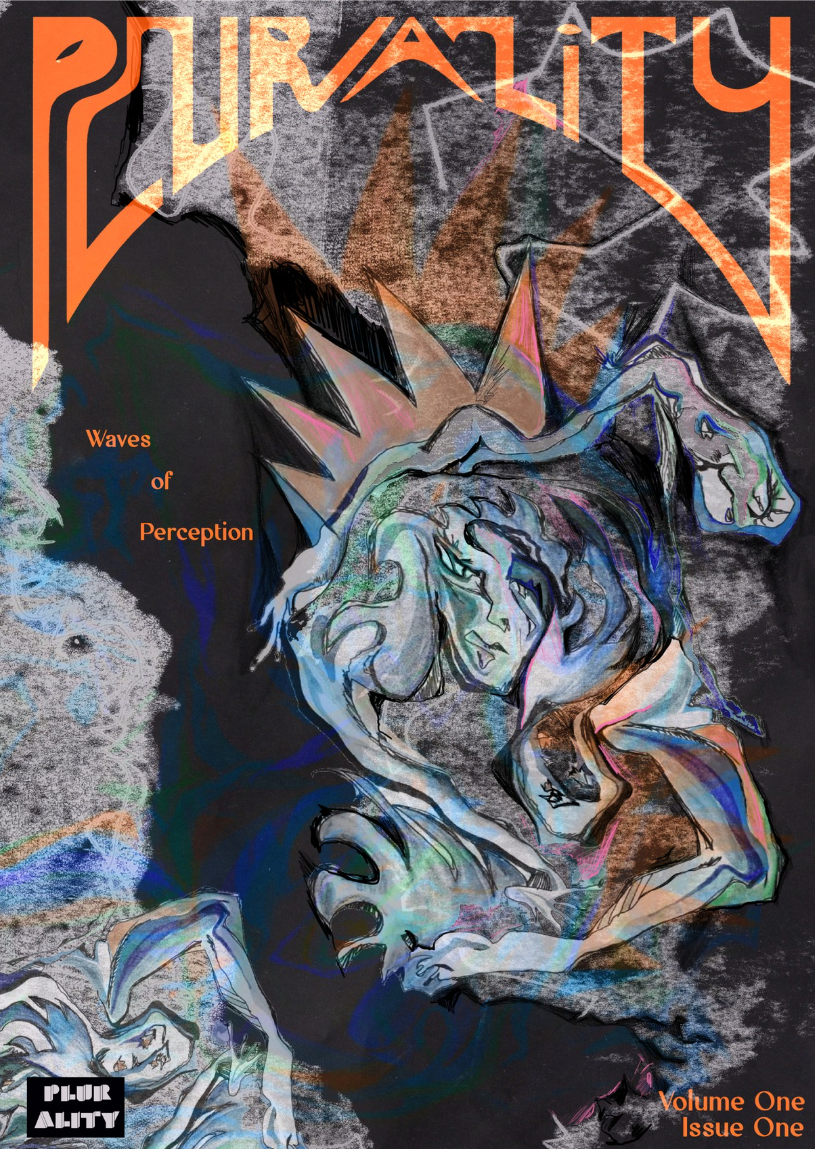Mana Wāhine: Decolonising Feminism and Patriarchy in Aotearoa
DOI:
https://doi.org/10.2218/plurality.10071Keywords:
Mana Wāhine, Indigenous Feminisms, Māori Feminism, White FeminismAbstract
Aotearoa/New Zealand was the first country in the world to give women the right to vote in 1893, Prime Minister Jacinda Ardern was widely celebrated for her response to Covid-19 (Roy, 2020), and the country, despite having experienced a swing towards the right in the 2023 general election (Corlett 2023), is generally seen as one of the most progressive (McDonald, 2020). But does the situation of Māori women paint a different picture? It is important to look at numerous additional difficulties Māori women face compared to Pākehā women. Statistics show that Māori women are significantly overrepresented in prisons (Adair, 2023) and are much more likely to be unemployed than all other demographics (Reilly, 2019). According to Linda Tuhiwai Smith, a leading Māori scholar on Mana Wāhine theory (1992), Māori women face a double jeopardy of oppression for being both a woman and Māori. To understand their situation, it is essential to examine what role colonialism plays in this oppression. In this essay, I explore how colonialism has shaped the struggles Māori women face, and how they respond to it through Māori feminisms, – more specifically, through the concept of Mana Wāhine . I start by describing how colonialism is a gendered process that brought patriarchy to Aotearoa, and how this colonial encounter shaped interactions between white and Māori feminists, an encounter that is marked by misconstructions of distinct realities that are assumed to be the same. I move on to Indigenous feminism in Aotearoa by categorising Mana Wāhine as a decolonising Māori form of feminist theory and tying it into transnational efforts before finishing with a conclusion. I find that the colonial encounter lastingly shaped the situation of Māori women in Aotearoa by introducing Western binaries, gender norms and patriarchy. Furthermore, the lens of colonisation distorted Māori culture to present it as sexist. The only way out of thisdouble bind for Māori women is therefore an approach that takes their oppression as both women and Māori into account.
Downloads
References
Adair, J. (2023) ‘Shining a light on women in New Zealand prisons’, 3 February. Available at: https://inspectorate.corrections.govt.nz/news/news_items/shining_a_light_on_women_in_new_zealand_prisons.
Corlett, E. (2023) ‘New Zealand abandons Labour and shifts to the right as country votes for wholesale change’, The Guardian, 14 October. Available at: https://www.theguardian.com/world/2023/oct/14/new-zealand-election-2023-results-national-party-labour-.
Dominy, M.D. (1990) ‘Maori Sovereignty: A Feminist Invention of Tradition’, in J. Linnekin and L. Poyer (eds) Cultural Identity and Ethnicity in the Pacific. University of Hawaii Press, pp. 237–258. Available at: https://doi.org/10.1515/9780824843601-011.
Gabel, K. (2013) ‘Poipoia Te Tamaiti Ki Te Ūkaipō: Theorising Māori Motherhood’, Mana Wahine Reader | A Collection of Writings 1999-2019, Volume II [Preprint]. Available at: https://www.puketeraki.nz/site/puketeraki/Mana%20Wahine%20Volume%202.pdf.
Gómez-Barris, M. (2017) The Extractive Zone : Social Ecologies and Decolonial Perspectives / Macarena Gómez-Barris. Durham: Duke University Press, (Dissident Acts). Available at: https://doi.org/10.1515/9780822372561.
Irwin, K. (1992) ‘Towards Theories of Māori Feminisms’, Mana Wahine Reader | A Collection of Writings 1987-1998, Volume I [Preprint]. Available at: https://www.puketeraki.nz/site/puketeraki/Mana%20Wahine%20Volume%201.pdf.Johnston, P. and Pihama, L. (1994) ‘The Marginalisation of Māori Women’, Mana Wahine Reader | A Collection of Writings 1987-1998, Volume I [Preprint]. Available at: https://www.puketeraki.nz/site/puketeraki/Mana%20Wahine%20Volume%201.pdf.
Mahmood, S. (2005) Politics of piety : the Islamic revival and the feminist subject / Saba Mahmood. Princeton: Princeton Univ. Press (Islamic revival and the feminist subject).
McDonald, E. (2020) ‘Why is New Zealand so progressive?’, BBC Travel, 19 May. Available at: https://www.bbc.com/travel/article/20200518-why-is-new-zealand-so-progressive
Mikaere, A. (1999) ‘Colonisation and the imposition of patriarchy : a Ngāti Raukawa woman’s perspective’, Mana Wahine Reader | A Collection of Writings 1999-2019, Volume II [Preprint]. Available at: https://www.puketeraki.nz/site/puketeraki/Mana%20Wahine%20Volume%202.pdf.
Moewaka Barnes, H. and McCreanor, T. (2019) ‘Colonisation, hauora and whenua in Aotearoa’, Journal of the Royal Society of New Zealand, 49(1), pp. 19–33. Available at: https://doi.org/10.1080/03036758.2019.1668439.
Mutu, M. (2019) ‘The Treaty Claims Settlement Process in New Zealand and Its Impact on Māori’, Land, 8(10). Available at: https://doi.org/10.3390/land8100152.
Paisley, F. (2006) ‘Glamour in the Pacific: Cultural Internationalism and Maori Politics at the Pan-Pacific Women’s Conferences in the 1950s’, Pacific studies, 29, pp. 54–81.Pihama, L. (2018) ‘Some Reflections on Māori Women & Women’s Suffrage’, Kaupapa Māori as Transformative Indigenous Analysis, 19 October. Available at: https://kaupapamaori.com/2018/10/19/some-reflections-on-maori-women-womens-suffrage/.
Pihama, L. (2020) ‘Mana Wahine: Decolonising Gender in Aotearoa’, Australian feminist studies, 35(106), pp. 351–365. Available at: https://doi.org/10.1080/08164649.2020.1902270.
Reilly, A. (2019) ‘Maori women, discrimination and paid work: The need for an intersectional approach’, Law review (Wellington), 50(2), pp. 321–339. Available at: https://doi.org/10.26686/vuwlr.v50i2.5748.
Roy, E.A. (2020) ‘Jacinda Ardern’s Covid response looks set to dominate New Zealand election’, The Guardian, 16 October. Available at: https://www.theguardian.com/world/2020/oct/16/jacinda-arderns-covid-response-looks-set-to-dominate-new-zealand-election.
Simmonds, N. (2011) ‘Mana Wahine: Decolonising Politics’, Mana Wahine Reader | A Collection of Writings 1999-2019, Volume II [Preprint]. Available at: https://www.puketeraki.nz/site/puketeraki/Mana%20Wahine%20Volume%202.pdf.
Spivak, G.C. (2010) ‘Can the Subaltern Speak?’, in R.C. MORRIS (ed.) Can the Subaltern Speak? Columbia University Press (Reflections on the History of an Idea), pp. 21–78. Available at: http://www.jstor.org/stable/10.7312/morr14384.5 (Accessed: 5 December 2023).Tuari Stewart, G. (2022) ‘Mana Wahine’, in B.G. Smith and N. Robinson (eds) The Routledge Global History of Feminism. Routledge. Available at: https://www.taylorfrancis.com/chapters/edit/10.4324/9781003050049-37/mana-wahine-georgina-tuari-stewart.
Tuhiwai Smith, L. (1992) ‘Maori Women: discourses, projects and mana wahine.’, Mana Wahine Reader | A Collection of Writings 1987-1998, Volume I [Preprint]. Available at: https://www.puketeraki.nz/site/puketeraki/Mana%20Wahine%20Volume%201.pdf.
Waitangi Tribunal (2023) Mana Wāhine Kaupapa Inquiry. Available at: https://www.waitangitribunal.govt.nz/en/inquiries/kaupapa-inquiries/mana-wahine.
Waitere, H. and Johnston, P. (2009) ‘Echoed Silences: In absentia: Mana Wahine in institutional contexts’, Women’s Studies Journal, 23(2), pp. 14–31.
Yates-Smith, A. (2006) ‘Te Ūkaipō - te Taiao: the mother, the nurturer – nature’, Mana Wahine Reader | A Collection of Writings 1999-2019, Volume II [Preprint]. Available at: https://www.puketeraki.nz/site/puketeraki/Mana%20Wahine%20Volume%202.pdf.
Zinn, M.B. (2000) ‘Feminism and Family Studies for a New Century’, The Annals of the American Academy of Political and Social Science, 571(1), pp. 42–56. Available at: https://doi.org/10.1177/0002716200571001004.
Downloads
Published
Issue
Section
License
Copyright (c) 2024 Lea Kern

This work is licensed under a Creative Commons Attribution-NonCommercial-ShareAlike 4.0 International License.






